A proud Israeli American Jew who once hated baba ganoush, Ariel started pineapple DC with a simple, yet powerful, idea: bring women in food together around good food.
Her personal mantra comes from The O.C., Al Gore and Joan Nathan are her heroes, and she can talk to anyone.
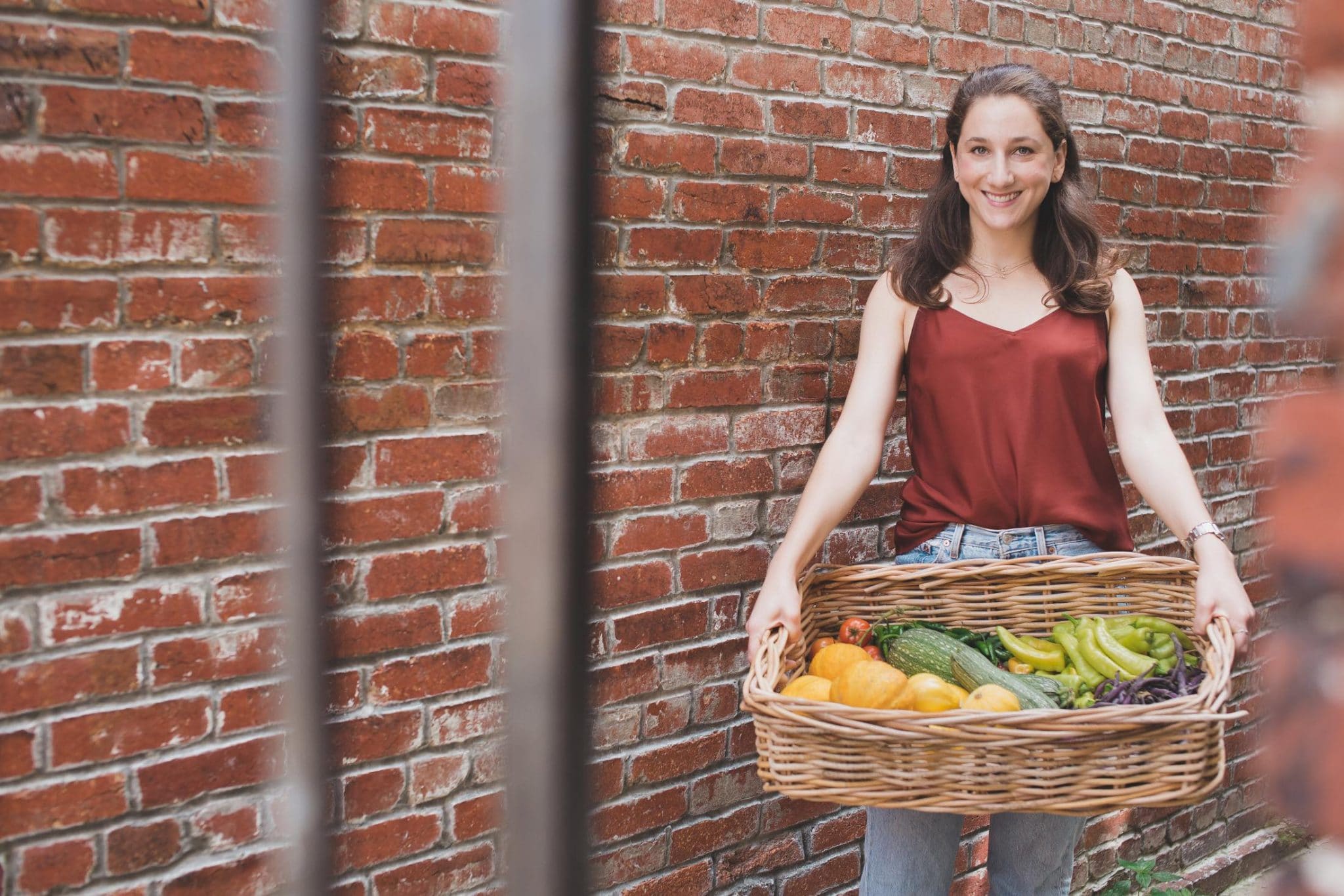
Describe your early years.
I grew up in the Bay Area. I am a first-generation American. My mom was born in Tel Aviv, and my dad was born in Bucharest, Romania and immigrated to Israel just in time to serve in the Six-Day War.
I grew up in a really awesome, suburban life. Conservative Jewish with a synagogue, Sunday school, bat mitzvah, the whole deal. At the same time, my dad was a very secular Jew, and I had tons of family in Israel. I grew up going to Israel at least once a year.
I loved food. I was influenced by going to farmers’ markets every Sunday and having a mom who took me and my brother out to restaurants and took us traveling from a young age.
I moved to D.C. when I was 14. My mom got remarried. We uprooted our lives and settled into a new one. I look back on that transition, and it was the hardest thing – leaving a place where you grew up, transitioning in the middle of high school. D.C. was the polar opposite of SF. I went from a public school to a private school. I remember my first summer in D.C., I looked around and thought, “Wait, where’s the water? Where are the mountains?”
My mom and my stepdad “dragged” me – I’m using air quotes here – to the Aspen Ideas Festival. My stepdad’s company was an underwriter of the event.
When you’re 16, going with your parents to a week full of learning sessions isn’t your idea of fun. It turned out to be one of the most transformative experiences of my life.
I was really interested in environmental science and learned about this thing called climate change from Al Gore and I thought, “This is a real problem, and there are solutions. It’s just a matter of will and rethinking how we live our lives.”
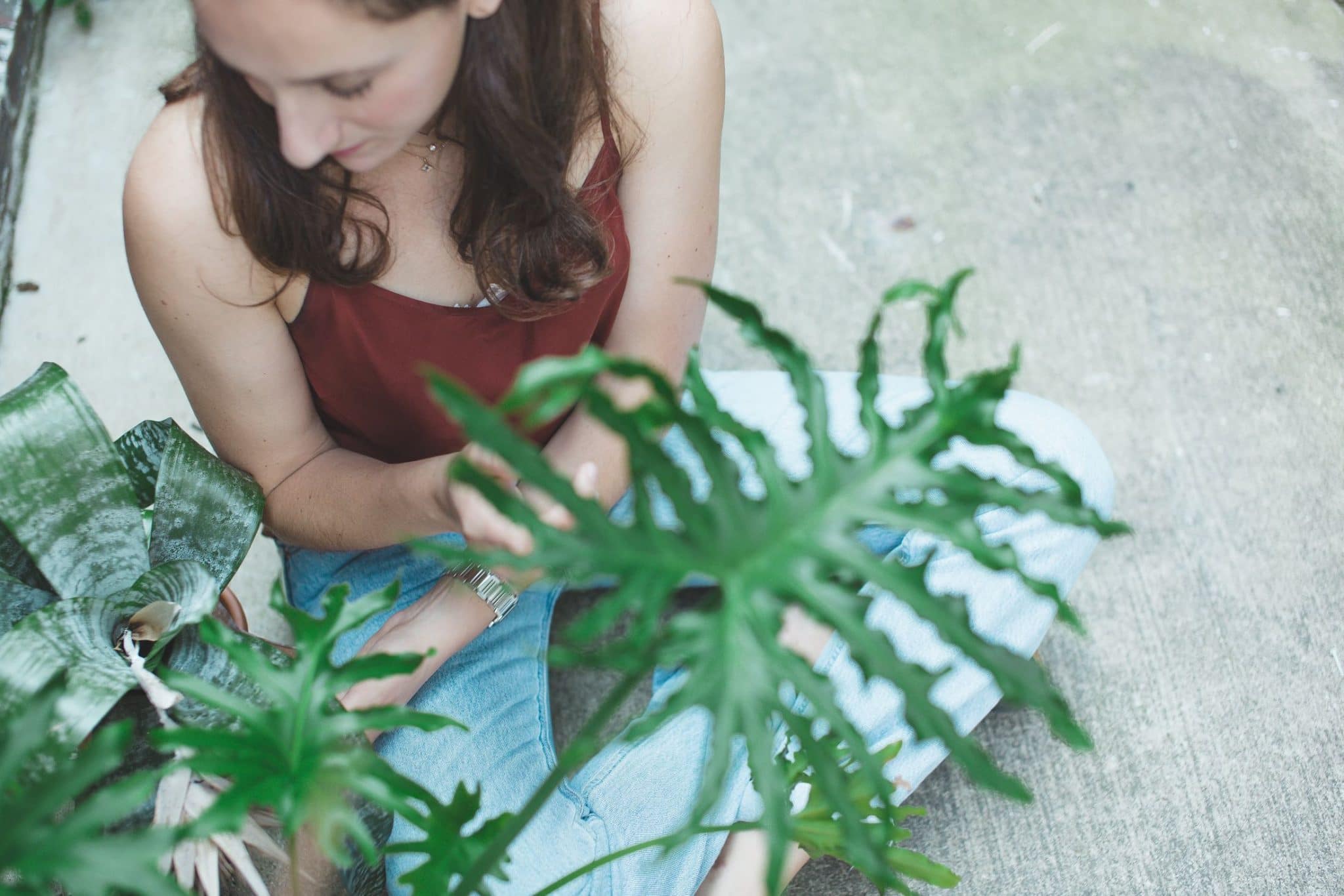
What are your strongest food memories from your childhood?
We had an epic farmers’ market in the Bay Area where you had the most beautiful produce all year round. We had a bread man who made the best sourdough. There’s an Israeli who made tahini and baba ganoush.
As a kid, I hated baba ganoush. That smokiness really did not jive with me.
So, I would get the tahini, my mom would get the baba ganoush, we’d get his homemade pita, and that was the weekend perk.
My grandma lived in Walnut Creek nearby and we would go to her house. She was German. She escaped right after Kristallnacht, and she continued to make German food at her house. I remember schnitzel, I remember German apple cake, goulash. I didn’t grow up eating the Jewish food many Americans know. I did not eat kugel, I did not eat any kind of cholent stew.
What does Jewish food mean to you?
It is a reflection of my experiences in Israel and my maternal grandmother. It’s what brings Jews of various backgrounds around the table and eating together. I had a dinner at my house last weekend with all Jews, and we made tacos. To me, that’s still Jewish food. It’s a mix of tradition and who’s at the table.
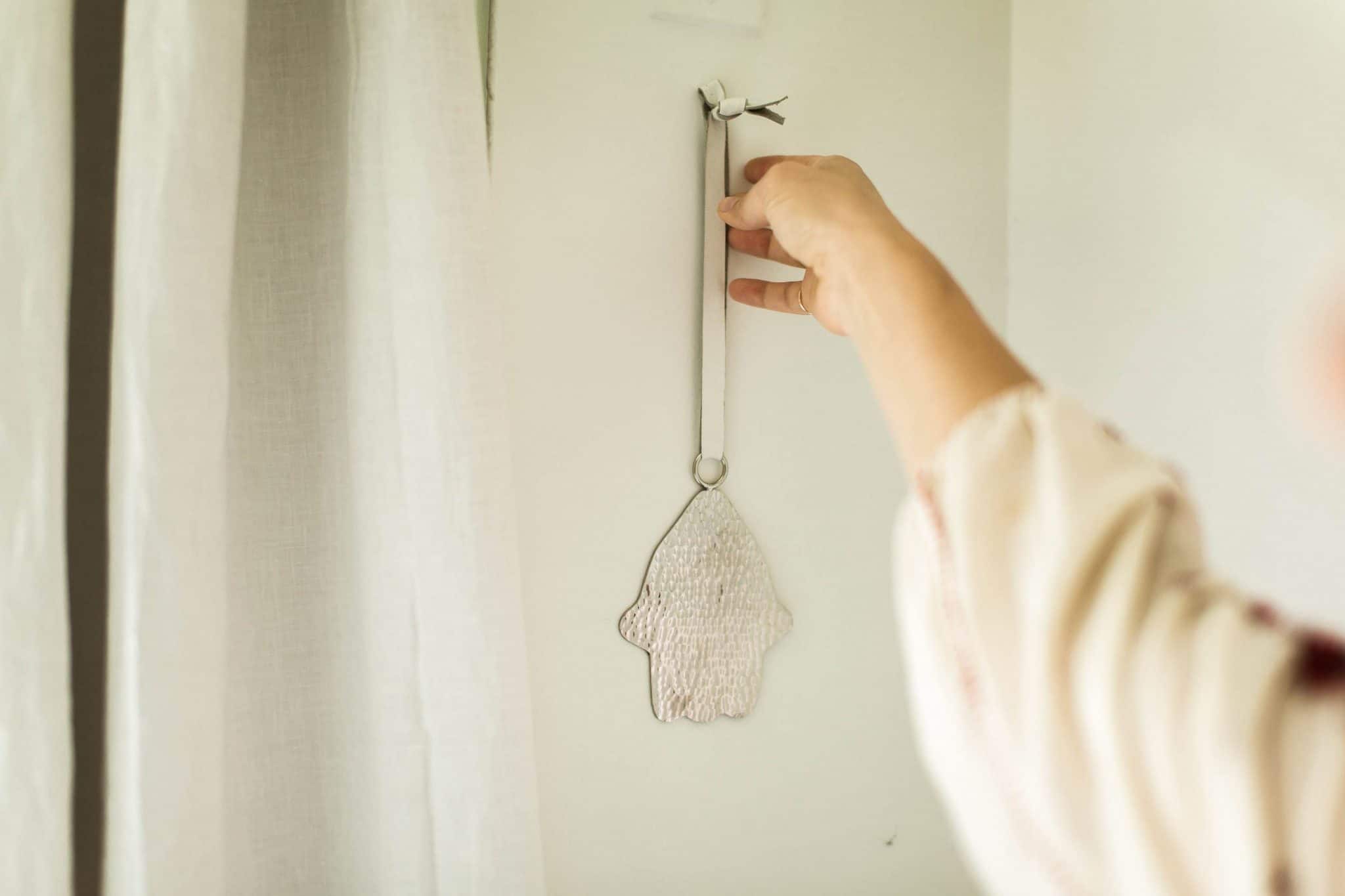
How did Judaism play a role in your upbringing?
Jewish culture has always been the underpinning for who I identify with and a point of pride.
Anytime there’s someone famous or super accomplished, my mom is like, “They’re Jewish!,” instilling that, despite all the circumstances that Jews have gotten through throughout the ages, we’ve thrived. Knowing that we are a people who innovate, who persevere, who are resilient, is something that I’ve always thought about.
Once I developed a stronger connection to Israel in my young adulthood, I thought, “these are my people.”
When I land in Israel, something comes alive. It’s a spirit.
As an American Jew who has strong Israeli roots, it’s confusing, because the American Jewish identity isn’t really mine, nor is the Israeli identity. Where do I fit into this mix?
Did you know what you wanted to be when you grew up?
I was always dabbling. I wanted to be a fashion designer. I had my own line: APSF, à la DKNY. I remember wanting to be a climatologist when I went to college, which is how I ended up pursuing Environmental Studies.
My senior thesis was going to be about river management as a way to bring about peace in the Middle East. I thought, “I can’t do this for another year.” The only thing I could possibly spend a year researching and feeling passionate about is food. That was the lightbulb moment for me.
I ended up writing a business plan to open up a non-profit kitchen incubator in D.C. for low-income or immigrant women. I didn’t end up opening such an incubator for a variety of reasons, but, learning about organizations like Hot Bread Kitchen in Harlem or La Cocina in San Francisco really showed me that women thrive in communities with collaboration and sharing resources.
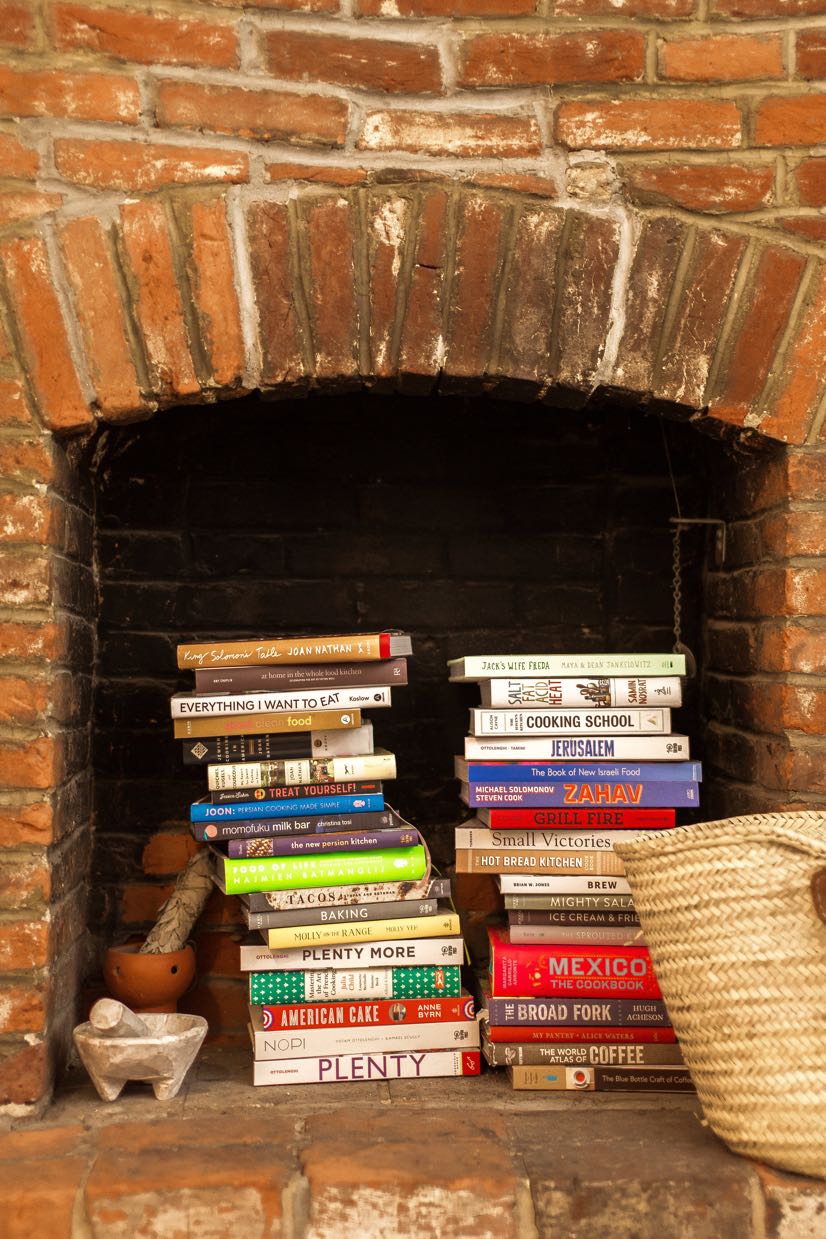
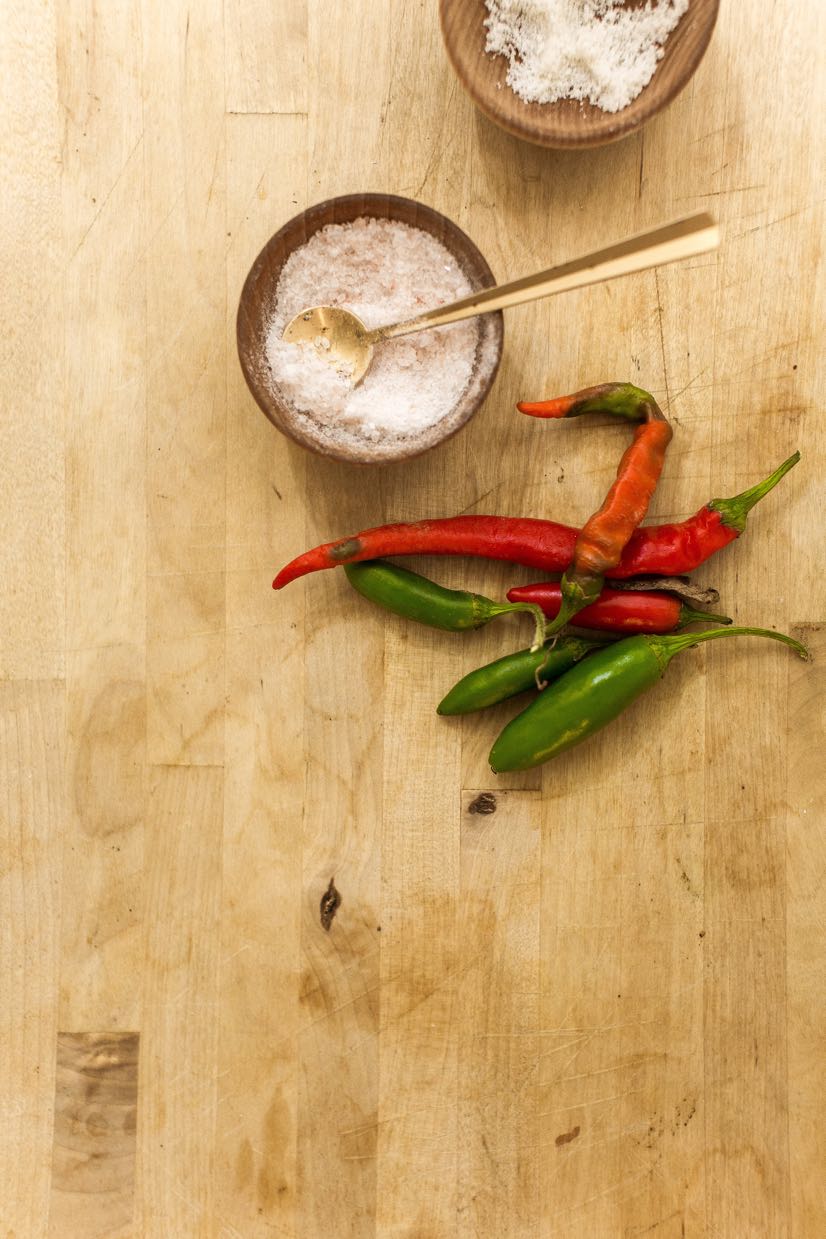
Do you have a personal mantra or words that you live by?
I was in a class for pre-bar mitzvah kids that was about Jewish culture in society, and we watched the Chrismukkah episode of The O.C. I remember when Summer said to Seth Cohen, “Confidence, Cohen. Confidence.” I still keep that today – it’s a pep talk.
The second thing is “fake it ‘til you make it.” No one knows everything. Just put yourself out there. You learn, you do, you ask questions, see what happens.
The third thing is “just breathe.” It seems really simple, but it helps me take a step back and focus on what I need to focus on.
What is something that you have figured out?
People. I love people.
I feel like I can talk to anyone.
And, not just talk to them, but have a meaningful conversation and establish meaningful relationships, not only between the two of us, but a broader purpose to why we’re connected.
What is something that you have not figured out yet?
When I think about my business, something I’ve not figured out is creating a real structure around it. A lot of it has been following my gut and intuition and problem-solving.
What is something that helps you and your partner be a good team?
We call ourselves Team UP – UP is the initials of our last names – and it’s been really helpful thinking of ourselves as a team. We succeed together.
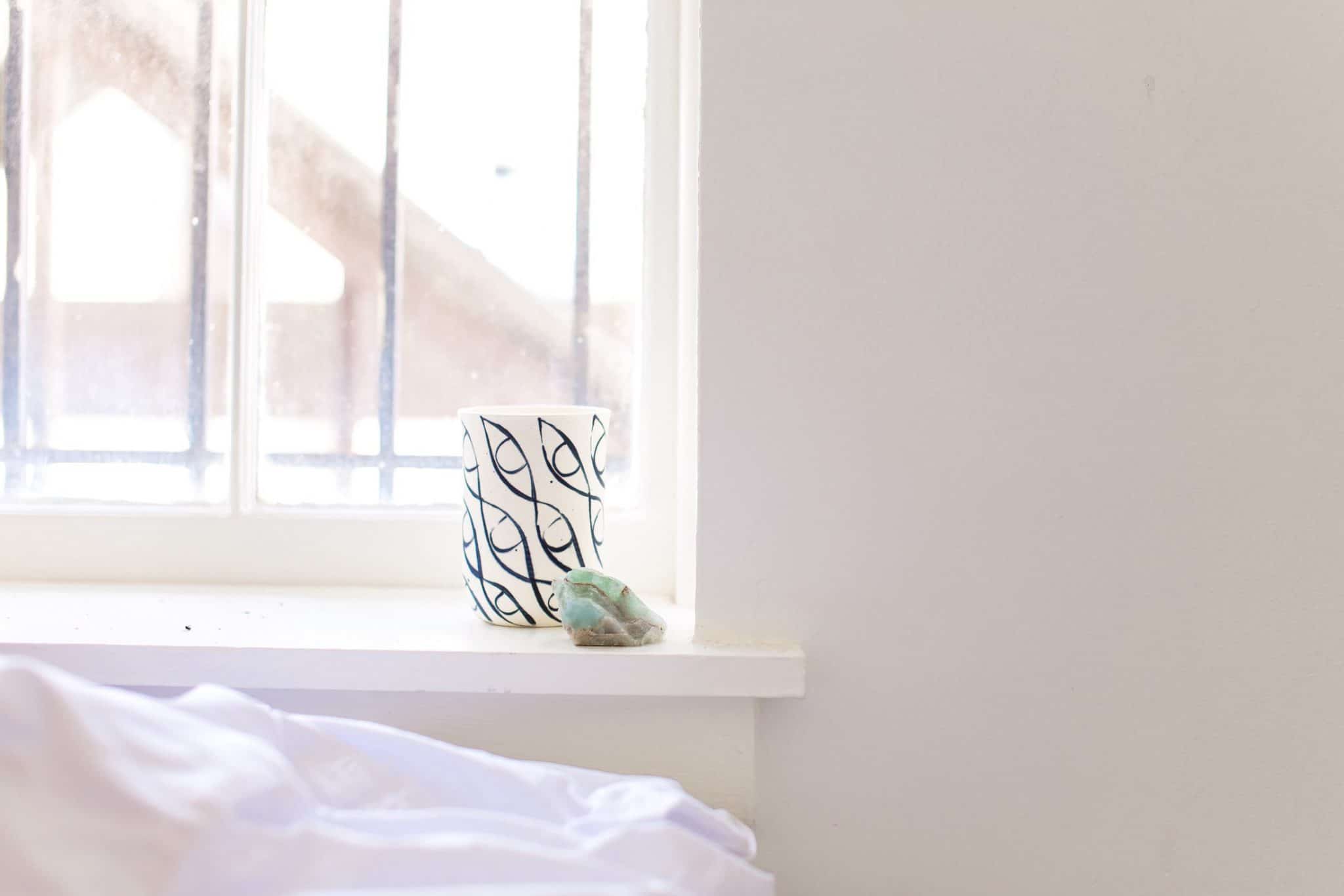
What do you value in your friends?
I see friends not only as people with whom I enjoy spending time, but also people who inspire me, whether it’s their dedication to work or family. I love people’s brains. I wonder, “How do you think that way? Why do you ask questions like that?” I love learning from them.
I’m really big on reciprocity. I’m not always looking for people to give me something, but I pour a lot into relationships that mean a lot to me, and it’s important that I feel the same. Loyalty, you have each other’s backs. People who like to have fun.
What’s the best decision you’ve ever made?
Studying abroad in Israel, because my dad was living there at the time, and that was the first time in my life I got to know him as an adult. He passed away 6 months after I finished studying abroad. Though it was a fraught relationship, as you become an adult, there’s a new way to relate to your parent, and I would not have had any of that time with him if I hadn’t made that decision.
What has been your greatest achievement so far?
I doubted myself as a young woman and was at the top of my class, so I wish I could have told myself, “Don’t doubt yourself so much. Enjoy the learning. Have a little bit more confidence.”
pineapple brings me a lot of joy. I’m proud of creating a business. Also, I see women come alive from it and feel validated and have a likeminded community, and that’s everything.
We all want to feel like we belong, we all want to be included.
I want to create a world where women support each other in every sense. Like, “Hey, I see you, what you’re doing is cool, I want to come to your business, I want to read your blog” or looking out for each other in bigger ways.
Who are a few women in food whom you’re pining for these days?
I mean, Joan Nathan. She has inspired me since I was a little girl, looking at her cookbooks in my mom’s kitchen and now in my adult life. She has been an incredible mentor to me. I admire her career researching and sharing Jewish cuisine from around the world and her leadership in the D.C. food scene, spearheading fundraisers and bringing the community of women in food together through Les Dames d’Escoffier.
Alice Waters has stuck by her mission in life to get people to eat more seasonally and fresh, and it’s not just the wealthy patrons in her restaurant.
Michelle Obama is a woman who is taking this to a policy level, and I’m really excited to see what she continues to do in that realm.
A friend of mine works for Annie’s Organic. She’s helping them rethink their whole agricultural supply chain. I have a friend in D.C. whose family has a lavender farm and, this summer, her mom moved away from the farm. She said, “I’m going to take up all of the lavender production and harvesting.” She’s doing it and that’s amazing. I have friends who are Stanford-educated and could work anywhere, and they’re trying to transform what a food bank is in a community. It’s not just a place where sheet cakes and candy that didn’t sell are going to people who are hungry. It’s getting healthy food to people who need it.
I’m blessed that I have so many women in food in my life. Their efforts amount to a sum that’s greater than its parts.
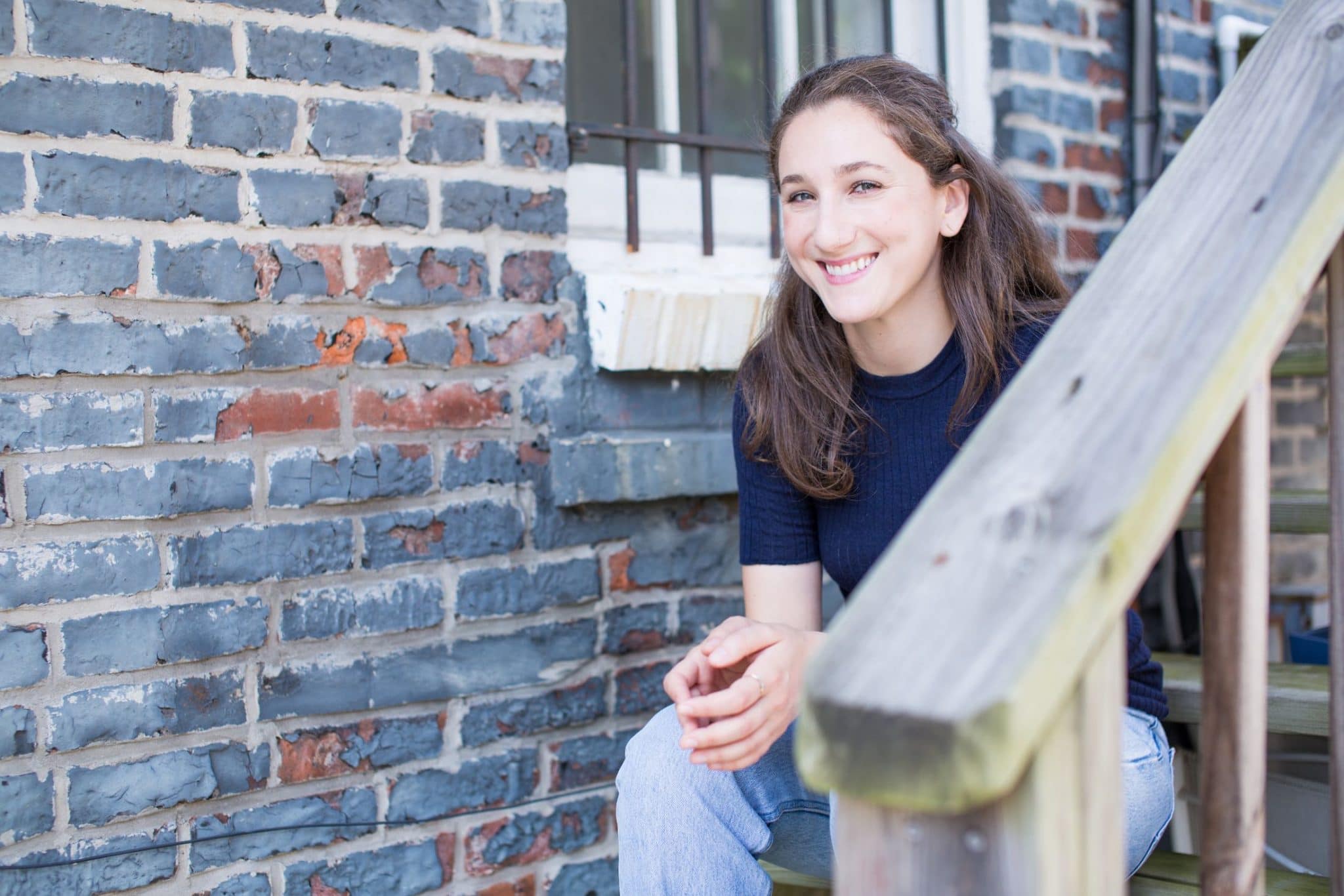
How does Judaism play a role in your daily life?
It’s more implicit than explicit. For me, it was very important to date someone who is Jewish. We value many of the same things: each other, family, community.
My mom has always talked about how Jewish religion is not about believing in something, it’s about doing things. For the last 2 years, I’ve cultivated this community called pineapple in D.C., and I want to do that in other cities across the country. There’s value in bringing women together to collaborate with one another and learn and support each other.
I don’t know the Torah, I don’t know the Old Testament, but I love my cultural Jewish identity. I love saying I’m Israeli.
Judaism is a weird thing. Is it a culture, is it a religion, is it an ethnic identity?
I feel lucky that I get to be Jewish in this day and age in our country, knowing that it hasn’t always been easy. It’s a complex and special identity, and we are privileged to do a lot with it.
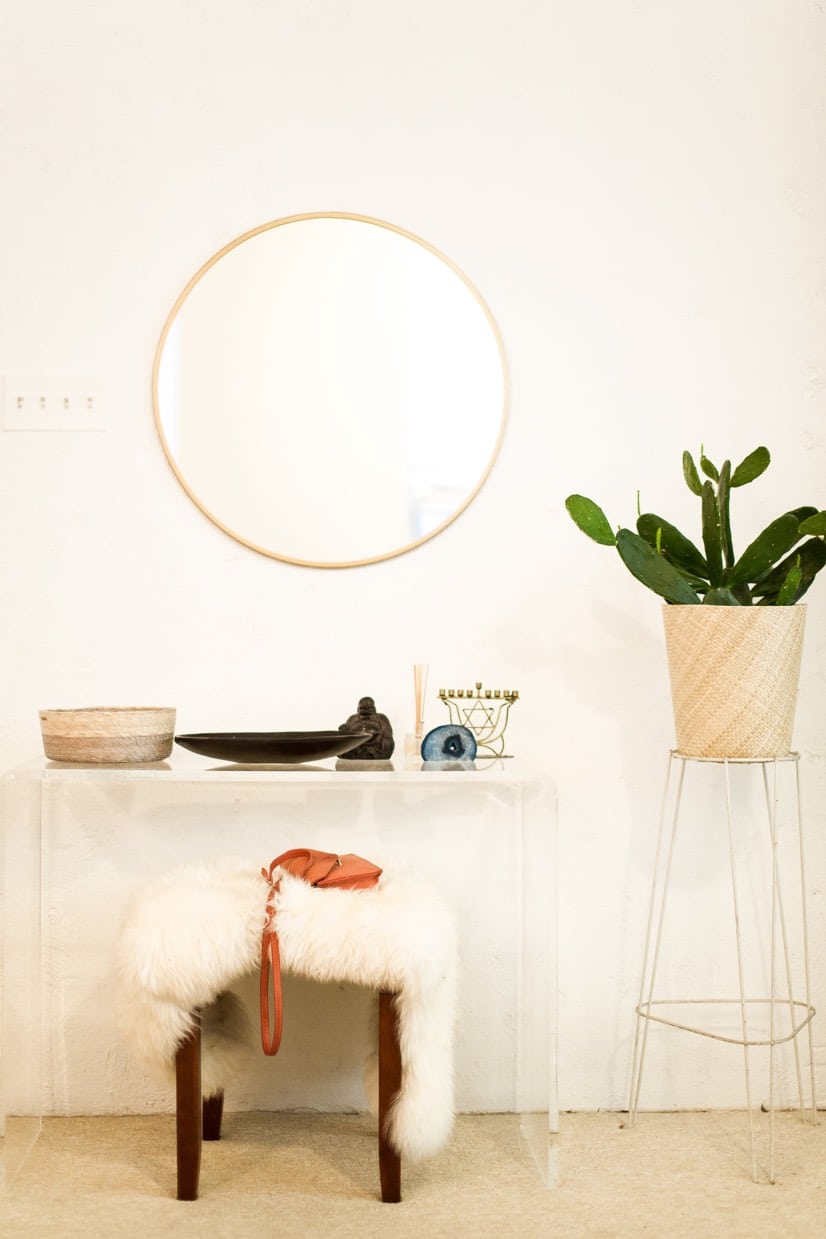
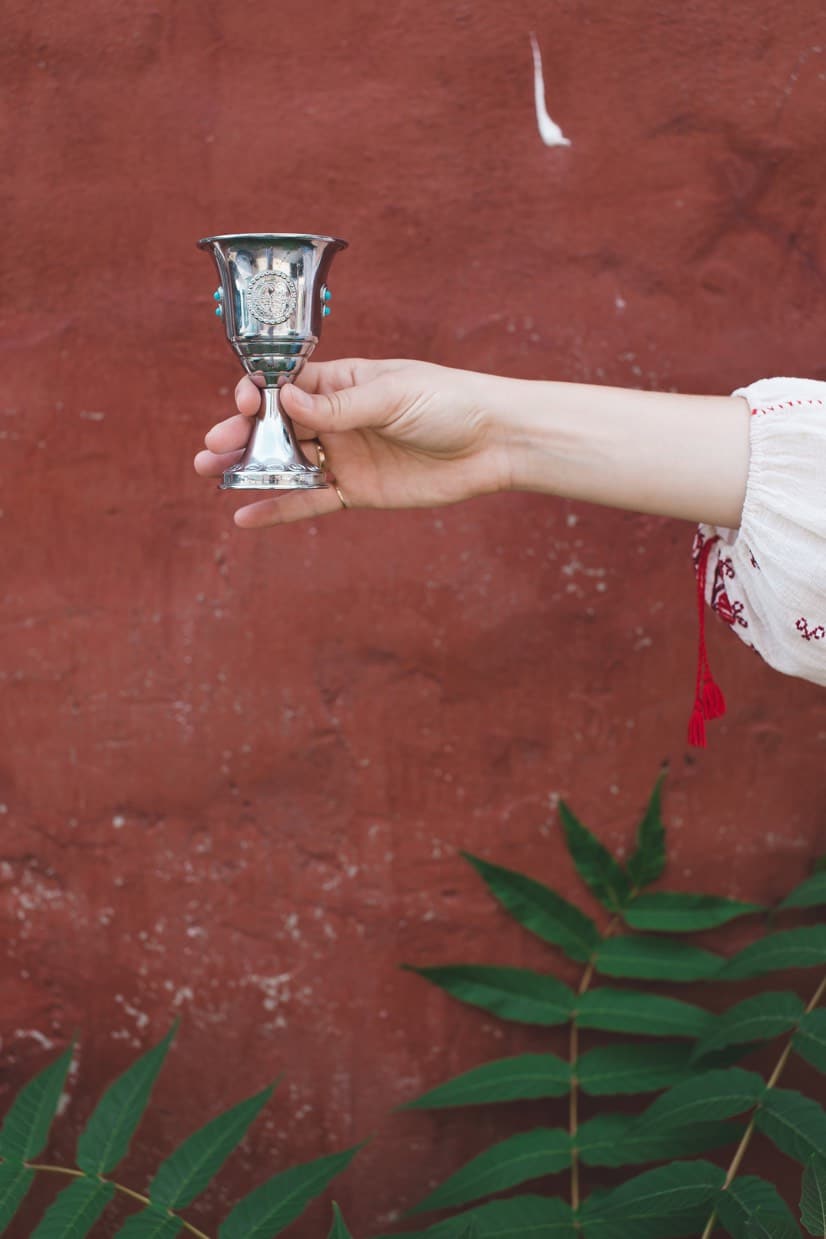
What’s your favorite meal in Israel?
At Rama’s Kitchen in Nataf. It’s a woman, Rama, who has an organic herb and vegetable garden and a gorgeous indoor/outdoor terrace restaurant. The food is amazing, but it’s the setting. You’re in the hills of Jerusalem, you see the gardens from which your produce came, it’s earthy, it’s got a feminine touch. I just love it.
What’s your favorite meal in D.C.?
Ones that we make. We have a weekly ritual of going to the Sunday DuPont Circle Farmers’ Market. We know the farmers and the pickle vendors, and that feels like a real community. I’m one of those people who cooks by what’s available.
Is there anything that you want to share?
A big question I’m asking myself is what is community in our day and age, and what is the value of building community, whether that’s social value, individual value, financial and economic value? How do we define that?
I think we need to get back to basics. Person to person, it starts there. Those interactions are really precious. It all starts there.
Photos by Leah Beilhart
Thank you for visiting Arq!
Arq is no longer publishing new content. We hope you'll enjoy our archived posts.